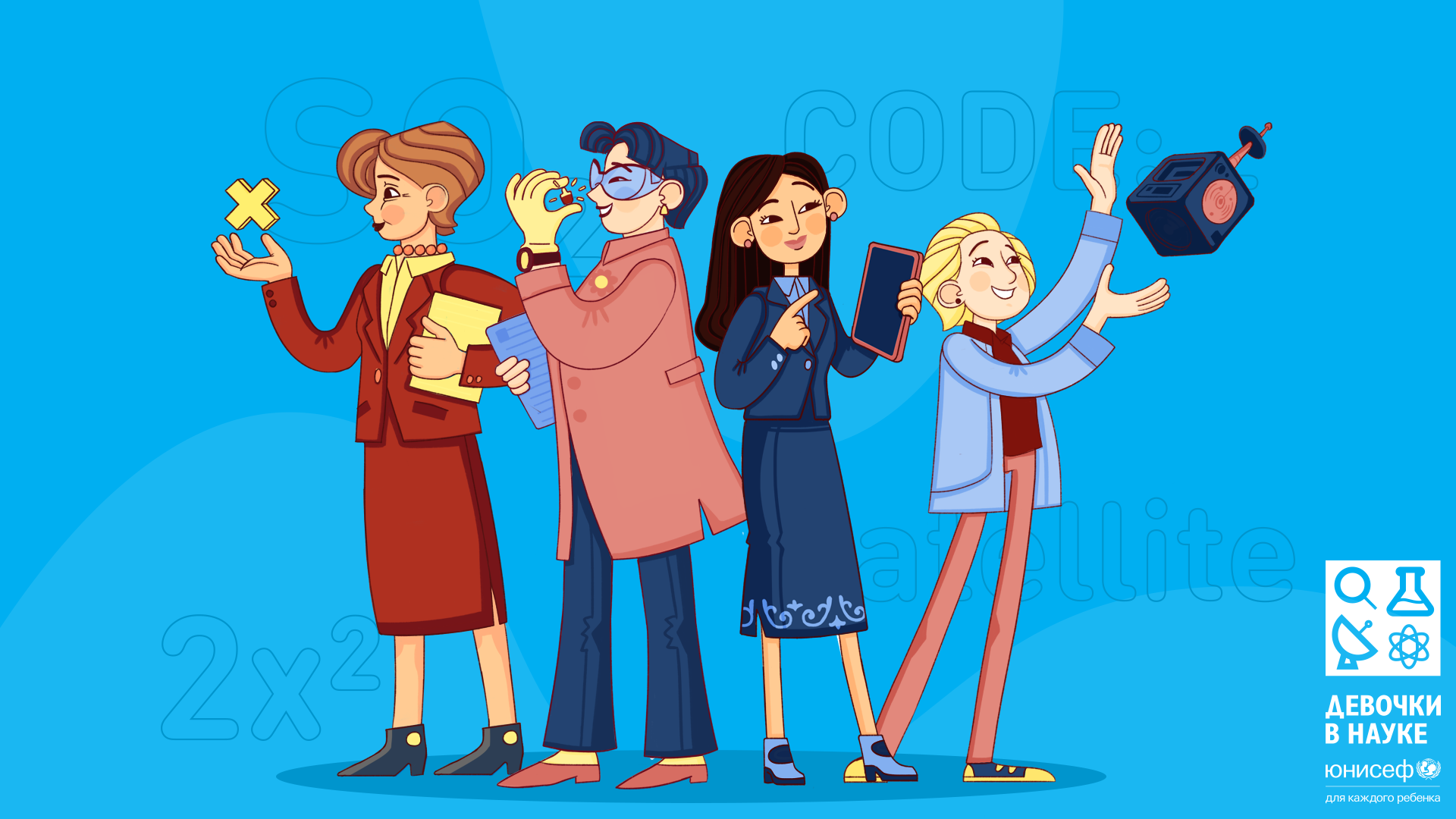UNICEF launches “Girls in science” initiative to support 500 girls to become role models and agents of changes
March 6, 2020, 08:20
BISHKEK, 06 March 2020 – According to MICS survey conducted by the National Statistics Committee and supported by UNICEF, only 1 out of 3 girls aged 15-19 have computer literacy*. On International Woman´s Day, UNICEF is launching the “Girls in Science” programme to empower 500 girls from new settlements and rural areas so they can excel in Science, Technology, Engineering and Math and get more career opportunities. The initiative includes professional orientation and pre-engagement training, followed by placement of girls in 2-4-months coaching programmes in public and private institutions, including those that focus on professional fields where women are often under-represented, such as IT, engineering, transport, construction, sciences, etc. As a result, the participating girls will be better equipped to pursue and continue studies in the selected fields after school. They will also be more prepared to access scholarship and will have more career opportunities, whether through their mentor’s support or in other companies after completing school education.
“Both education and gender equality are an integral part of the 2030 Agenda for Sustainable Development. In Kyrgyzstan, up to 86% of students in social sciences and humanities are women (National Statistics Committee data). But girls can also excel in scientific subjects and careers. Often girls are held back by gender stereotypes and existing social norms. This project will support Kyrgyzstani girls to unleash their true potential in all spheres of life and ensure that they can be fully equipped for the fast-growing knowledge-based economy”, said Christine Jaulmes, UNICEF Representative in Kyrgyzstan.
The programme aims to engage at least 15,000 girls from poor areas, with a focus on girls affected by migration and from vulnerable backgrounds, in a peer training sessions by 2022 so that they can make informed career choices in Information & Communication Technologies as well as Science, Engineering and Math and have the required skills to break the inter-generational cycle of poverty affecting their families and communities.
“While the world has mustered the political will to send many girls to school, it has come up embarrassingly short on equipping them with the skills and support they need not only to shape their own destinies, but to live in safety and dignity,” said UNICEF Executive Director Henrietta Fore. “Access to education is not enough – we must also change people’s behaviours and attitudes towards girls. True equality will only come when all girls are safe from violence, free to exercise their rights, and are able to enjoy equal opportunities in life”.
“Girls in Science” programme targets 14-18-year-old 500 schoolgirls and will be supported to be peer educators and role models for younger girls in their communities, potentially reaching and inspiring hundreds of thousands of girls as active and effective agents of change.
Источник: ЮНИСЕФ